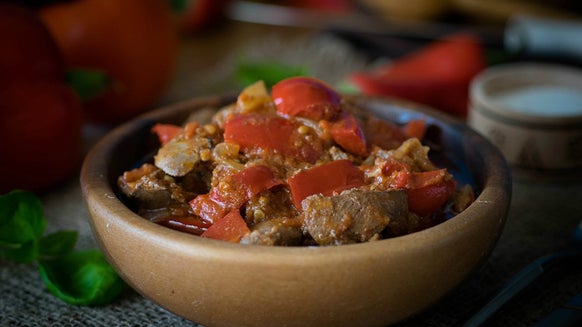Minimise Bloating & Support Gut Health With Nutritionist Approved Supplements

Our digestive systems have a lot to answer for. Indigestion, bloating, wind and irregularity — to name a few things we’ve long known it’s guilty of.
But that’s not the end of it. In recent years, studies have found gut health to be behind a whole host of other issues, including immunity and even the condition of our skin.
If you’ve been on TikTok in the last month, you’re likely to have been sucked into #guttok. If so, it’s likely you may have come across some information that may not have been fully correct.
Thankfully, Myprotein product developer Katie Brown has taken the time to lay out the best science-backed supplements to aid digestion and your gut.
The digestion process
The digestion process starts earlier than you perhaps ever realised — before food even passes your lips. It actually starts when you first see or even smell food, because this stimulates saliva production. Saliva contains enzymes that begin the process of breaking down food. Your “mouth watering” is the first stage of digestion.
And when you can’t stand to wait anymore and finally take that first big bite, the second stage of digestion is underway. Chewing your food is a huge part in the digestive process. You’re breaking the food down into smaller pieces, not only so you can swallow them, but so food has a greater surface area, allowing the digestive enzymes in your saliva to get to work more easily.
When your food is sufficiently chewed (the average person chews their food 32 times before swallowing, by the way) you’ll then swallow it. It then goes through your internal digestive system, where it’s broken down even further.
During this process of breaking the food down, all the important nutrients will be taken from the food — this is when nutrients, like precious protein, are taken from the food.
And that, in a nutshell, is the digestive process. Now for the explanation for how it protects your gut. As you can probably imagine, your diet plays the biggest part in your digestive health, but there are some supplements that can make your digestive life a little bit easier.
Bromelain
Derived from pineapples, bromelain functions as a protease. A protease breaks down proteins, some of which might be more difficult to digest. As you get older, the number of digestive enzymes in your stomach naturally reduces. With fewer enzymes you might experience bloating or cramps. Bromelain might help to reduce this.
Inulin powders
To maintain healthy digestion, a good place to start is by looking after what’s in your gut. You wouldn’t believe how much bacteria lives in your gut — trillions, but it’s all good bacteria. They play an essential role in helping with the breakdown of food and absorbing essential nutrients. If this balance is upset, you may experience bloating, stomach pain and fatigue.
Inulin powders are plant fibres that are classed as prebiotics. They feed good bacteria and stimulate their growth. The more good bacteria we have in our stomachs, the better we can digest food.
Fibre
If you’ve been around here for a while, you’ll have heard us banging on about the importance of fibre. It plays a role in speeding up the digestive process by maintaining bowel health. It's incredibly important we get our recommended daily intake of fibre (at least 30g). If your intake is currently low, and you’re trying to increase it, you should increase it gradually, allowing time for your body to adjust
Water
Water is essential for pretty much every aspect of life, including digestion. Water is essential to help movement in your digestive system — If you don’t drink enough of it, digested food can sit stagnant in your gut. Now that just screams bloating and discomfort.
Food journal
If you’re struggling with your gut health and feelings of bloating and discomfort, one of the best things you can do is keep a journal of the foods you're eating and the water you’re drinking. This way you can identify patterns and the foods that have a negative impact on you.
Take Home Message
Well, that was better and more informative than anything I’ve seen on #guttok. Thanks, Katie. But remember, issues with your digestive system can be complex. If something doesn’t seem right, or if you’re experiencing pain always talk to your doctor.






